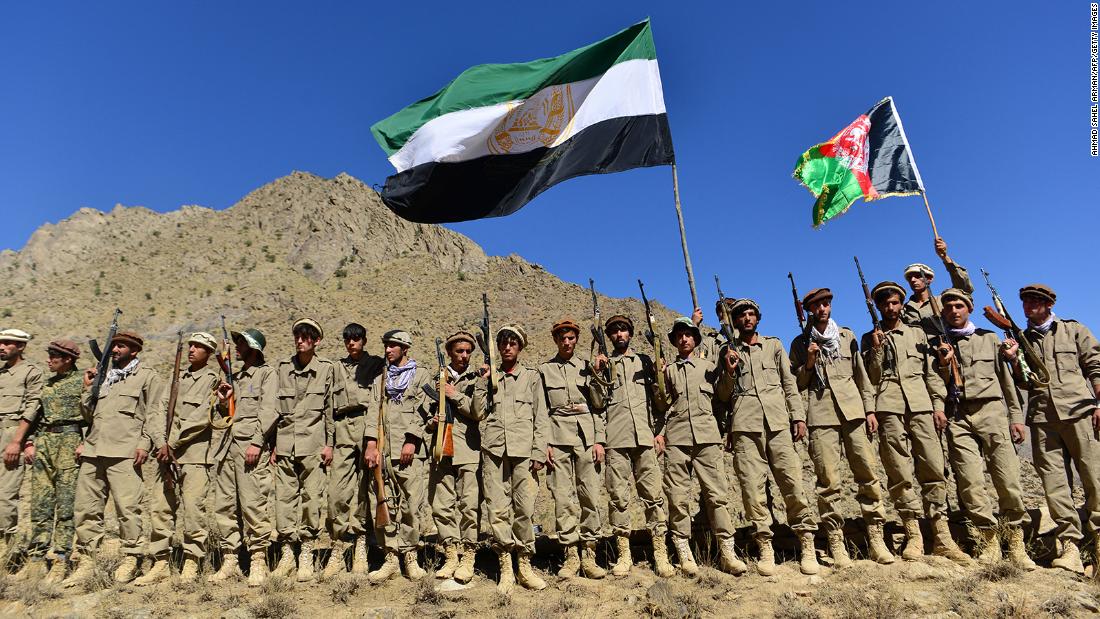
Earlier, Taliban spokesman Belal Kareemi told CNN that the group’s militant fighters had taken all districts in Panjshir province except the capital of Bazarak and Rokha districts, which remain under NRF control. But the resistance seemed to reject the Taliban’s claims.
For two weeks, the NRF, a multi-ethnic group that includes former members of the Afghan security force and apparently a thousand, has continued the fight against the Taliban after the almost complete capture of Afghanistan by militants.
NRF leader Massoud said the group had agreed on certain measures “to facilitate the requirements of national peace and security in the country” and “expects the Taliban to respond to the request of the clergy and take practical measures.”
“The National Resistance Front is ready to immediately end the war to achieve lasting peace, if the Taliban cease its attacks and military operations in Panjshir and Andarab,” Massoud said.
“The National Resistance Front fully supports the call of religious scholars to lift the sanctions imposed on Panjshir and hopes that the Taliban group will take this Islamic and humanitarian demand seriously and put it into practice,” he added.
“The National Resistance Front proposes that the Taliban halt its military operations in Panjshir, Andarab, Parwan and Kapisa and withdraw its forces from Panjshir and Andarab. In return, the National Resistance Front will direct its forces to refrain from military action, ”Massoud said. . Parwan and Kapisa are neighboring provinces of Panjshir.
There has been no official response from the Taliban to Massoud’s proposals.
His comments came when heavy fighting was reported in the valley over the weekend. In a tweet on Sunday, the NRF said its spokesmen Fahim Dashty and General Abdul Wudod Zara had been killed.
“Unfortunately, the Afghan National Resistance lost two comrades of the holy resistance against oppression and aggression today,” the group tweeted. “May your memory be eternal!”
On Sunday, Taliban spokesman Kareemi said the enemy had suffered “heavy casualties”, including its commanders, and that the Taliban hope to be able to “clean up Panjsher as soon as possible.” Taliban fighters are currently advancing on Rokha and Bazarak, Kareemi added.
Before he died, NRF spokesman Dashti appeared to reject the Taliban’s claims, in a tweet that Panjshir’s Parian district was “completely wiped out” by the Taliban.
“At least 1,000 terrorists were trapped because of their escape. All the attackers were killed, surrendered or captured by the locals with the help of the resistance as they fled and retreated. Many of these prisoners are foreigners and most of them they are Pakistanis, ”Dashti said.
CNN has not been able to independently verify overall casualty figures in recent rounds of fighting.
The Taliban are committed to protecting and safeguarding humanitarian personnel
The United Nations said in a statement on Sunday that the Taliban authorities “promised that security and humanitarian personnel and humanitarian access to those in need will be guaranteed and that humanitarian workers, both men and women, will be guaranteed freedom.” . of movement “.
It comes after UN Under-Secretary-General for Humanitarian Affairs Martin Griffiths met with Taliban co-founder and deputy director Mullah Baradar and other Taliban leaders in Kabul to reiterate the UN’s commitment to humanitarian aid.
“At this meeting, Griffiths reiterated the commitment of the humanitarian community to provide impartial and independent humanitarian assistance and protection to millions of people in need,” Stéphane Dujarric, spokesman for UN Secretary-General António, said in a statement. Guterres.
The UN said Afghanistan is “facing an approaching humanitarian catastrophe” fueled by conflict, drought and famine. Half of the country’s population (18 million people) need humanitarian aid to survive and the situation will worsen as a severe drought, the second in four years, will further contribute to famine in the coming months, according to Dujarric .
On Sunday, aid planes from Qatar and Bahrain arrived in Kabul, carrying more than 50 tons of medical aid and food products into the country. According to a statement from Qatar’s Foreign Ministry, Qatar sent a plane carrying 26 tons of aid and from Bahrain arrived a plane carrying 25 tons of aid, according to Mustafa Al Sayed, secretary general of Qatar. the Royal Humanitarian Foundation of Bahrain.
This is the second shipment of aid arriving at Kabul airport from Qatar since the withdrawal of US troops from the country in late August. The first shipment arrived on Saturday, with a plane carrying about 17 tons of aid, according to a statement from the Foreign Ministry.
CNN’s Celine Alkhaldi, Radina Gigova and Lauren Said-Moorhouse collaborated.